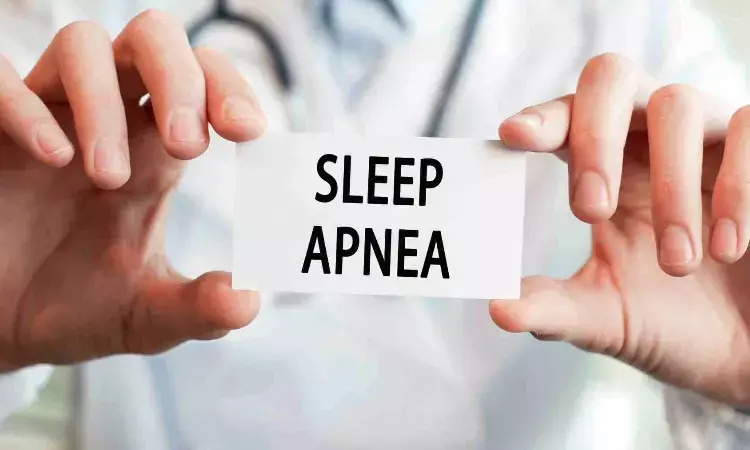- Home
- Medical news & Guidelines
- Anesthesiology
- Cardiology and CTVS
- Critical Care
- Dentistry
- Dermatology
- Diabetes and Endocrinology
- ENT
- Gastroenterology
- Medicine
- Nephrology
- Neurology
- Obstretics-Gynaecology
- Oncology
- Ophthalmology
- Orthopaedics
- Pediatrics-Neonatology
- Psychiatry
- Pulmonology
- Radiology
- Surgery
- Urology
- Laboratory Medicine
- Diet
- Nursing
- Paramedical
- Physiotherapy
- Health news
- Fact Check
- Bone Health Fact Check
- Brain Health Fact Check
- Cancer Related Fact Check
- Child Care Fact Check
- Dental and oral health fact check
- Diabetes and metabolic health fact check
- Diet and Nutrition Fact Check
- Eye and ENT Care Fact Check
- Fitness fact check
- Gut health fact check
- Heart health fact check
- Kidney health fact check
- Medical education fact check
- Men's health fact check
- Respiratory fact check
- Skin and hair care fact check
- Vaccine and Immunization fact check
- Women's health fact check
- AYUSH
- State News
- Andaman and Nicobar Islands
- Andhra Pradesh
- Arunachal Pradesh
- Assam
- Bihar
- Chandigarh
- Chattisgarh
- Dadra and Nagar Haveli
- Daman and Diu
- Delhi
- Goa
- Gujarat
- Haryana
- Himachal Pradesh
- Jammu & Kashmir
- Jharkhand
- Karnataka
- Kerala
- Ladakh
- Lakshadweep
- Madhya Pradesh
- Maharashtra
- Manipur
- Meghalaya
- Mizoram
- Nagaland
- Odisha
- Puducherry
- Punjab
- Rajasthan
- Sikkim
- Tamil Nadu
- Telangana
- Tripura
- Uttar Pradesh
- Uttrakhand
- West Bengal
- Medical Education
- Industry
Obstructive sleep apnea syndrome may increase risk of dementia, reveals research

A new study published in the BMJ Thorax journal showed that obstructive sleep apnea syndrome (OSAS) may be linked to an increased risk of all-cause dementia, especially vascular dementia, according to major research of 2.3 million individuals in the UK.
More than 55 million individuals worldwide suffer with dementia, which is an illness that mostly affects the elderly and causes cognitive decline. It is presently the 6th greatest cause of mortality. More research is warranted to identify and reduce other modifiable risk factors that are causally linked to the future risk of dementia, as only around one-fifth of the disability-adjusted life years linked to dementia can be attributed to known modifiable risk factors.
Both dementia and OSAS are common in the elderly population. According to scientific data, OSAS is linked to neurovascular injury and neurodegenerative processes, which can eventually result in dementia and cognitive impairment. The patients at risk for dementia have been advised to have OSAS assessed and treated. Still, not everyone agrees that OSAS is a modifiable risk factor for dementia.
Furthermore, it is yet unknown if treating OSAS can lower the risk of dementia or decrease cognitive decline. Determining whether particular features of OSAS are linked to cognitive outcomes is crucial because of the disease's diverse character. Thus, this study by Jingya Wang and colleagues was to compare the risk of dementia in people with and without OSAS.
The Clinical Practice Research Datalink (2000-2022), a nationally representative primary care electronic health records database in the United Kingdom, included data from 2.3 million persons (aged ≥18 years). Propensity scores were matched between 536 701 people without OSAS and 193 600 people with OSAS. To measure the risk of Alzheimer's disease, vascular dementia, and all-cause dementia in people with and without OSAS, Cox proportional hazard regression models were used.
All-cause dementia occurred in 2802 and 6211 people with and without OSAS over a median follow-up of 4.0 years, which translates to crude incidence rates of 2.47 and 2.34 per 1000 person-years, respectively. Higher odds of vascular dementia, all-cause dementia, and Alzheimer's disease were linked to OSAS. The incidence of all-cause dementia was comparable for OSAS patients who had been treated with continuous positive airway pressure (CPAP) to that of their matched peers.
Overall, higher chances of dementia from all causes and several of its subtypes are linked to OSAS. To further assess the effects of CPAP on cognitive decline and dementia risk, as well as the therapeutic advantages of screening for cognitive impairment in individuals with OSAS, more research is required.
Source:
Wang, J., Subramanian, A., Cockburn, N., Xiao, J., Nirantharakumar, K., & Haroon, S. (2024). Obstructive sleep apnoea syndrome and future risk of dementia among individuals managed in UK general practice. In Thorax (p. thorax-2024-221810). BMJ. https://doi.org/10.1136/thorax-2024-221810
Neuroscience Masters graduate
Jacinthlyn Sylvia, a Neuroscience Master's graduate from Chennai has worked extensively in deciphering the neurobiology of cognition and motor control in aging. She also has spread-out exposure to Neurosurgery from her Bachelor’s. She is currently involved in active Neuro-Oncology research. She is an upcoming neuroscientist with a fiery passion for writing. Her news cover at Medical Dialogues feature recent discoveries and updates from the healthcare and biomedical research fields. She can be reached at editorial@medicaldialogues.in
Dr Kamal Kant Kohli-MBBS, DTCD- a chest specialist with more than 30 years of practice and a flair for writing clinical articles, Dr Kamal Kant Kohli joined Medical Dialogues as a Chief Editor of Medical News. Besides writing articles, as an editor, he proofreads and verifies all the medical content published on Medical Dialogues including those coming from journals, studies,medical conferences,guidelines etc. Email: drkohli@medicaldialogues.in. Contact no. 011-43720751


